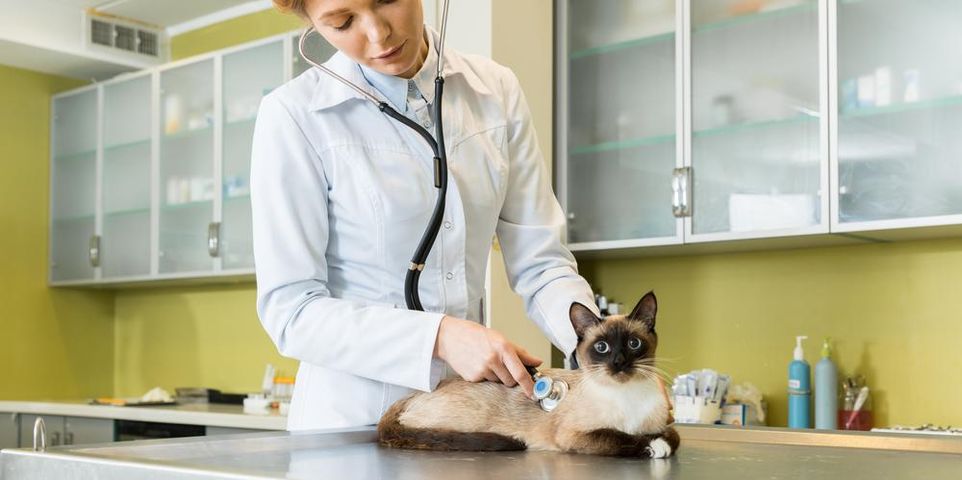
As a cat owner, you’re most likely familiar with your pet’s behavioral patterns, food preferences, and playtime rituals. But when your furry friend begins to stray away from habitual daily activities, how do you distinguish what is normal, and what isn’t? To ensure your kitty is as healthy as possible, schedule a veterinarian appointment, especially if they show any signs of the common feline illnesses below.
3 Common Cat Illnesses & How to Treat Them
1. Feline Lower Urinary Tract Diseases
 Both male and female cats are at risk of developing feline lower urinary tract disease (FLUTD), an illness affecting the urinary tract. Common red flags include frequent trips to the litter box often only urinating a small amount, trouble or pain when urinating, bloody urine, depression, or a lack of appetite. Your kitty may be at a higher risk of FLUTD if they’ve been through a recent stressful situation, are overweight, or live in a multi-cat household.
Both male and female cats are at risk of developing feline lower urinary tract disease (FLUTD), an illness affecting the urinary tract. Common red flags include frequent trips to the litter box often only urinating a small amount, trouble or pain when urinating, bloody urine, depression, or a lack of appetite. Your kitty may be at a higher risk of FLUTD if they’ve been through a recent stressful situation, are overweight, or live in a multi-cat household.
To successfully treat this ailment, you’ll need to see a veterinarian who may prescribe antibiotics, pain meds, antispasmodics or dietary changes. In some cases, this can be life-threatening and your cat may need urinary catheterization to remove a blockage or surgery to remove bladder stones. Male cats have an increased risk for urinary blockages while female cats more commonly get bladder infections.
2. Tapeworms
These parasites grow inside your cat’s small intestine and latch onto the inside wall of the intestine. As parasites, they feed on nutrients your cat ingests. Most cats develop worms by ingesting an infected flea, mouse, or other small animals. To treat this ailment, a veterinarian will prescribe deworming medicine, which will kill the parasites. Other intestinal parasites include Roundworms Hookworms and Giardia. These also require medications to treat your cat. MOST KITTENS HAVE ONE OR MORE OF THESE PARASITES. Tapeworms can be seen on the fur near the cat’s anus. They look like grains of rice. The other parasites need to be diagnosed with an annual fecal exam. Take a small sample of the stool to your Veterinarian for this test.
3.Upper Respiratory Infection
Your cat might be more at risk of this illness if they were rescued or adopted from a shelter. Their exposure to other animals in close quarters makes it easier to contract this cold-like infection. Symptoms include congestion, sneezing, fever, runny eyes, and loss of appetite. Depending on your furry friend, they might be able to recover on their own, but in most cases, they’ll need medication and constant care to ensure they stay hydrated and warm. Most Upper Respiratory Infections can be prevented or lessened with vaccinations.
If you believe your cat may have any of these illnesses, take them to Cherry Hill Dog & Cat Hospital in Elkton, MD. Led by skilled veterinarians Dr. Douglas Foreman and Dr. Roberta Mauro. This hospital has accurately diagnosed and treated ailments in dogs and cats for over 53 years. To learn more about their services, including microchip placement, vaccinations, deworming, dental exams, surgery and flea, and tick control programs, visit their website. To schedule an appointment for your furry friend, call (410) 398-1331.
About the Business
Have a question? Ask the experts!
Send your question

